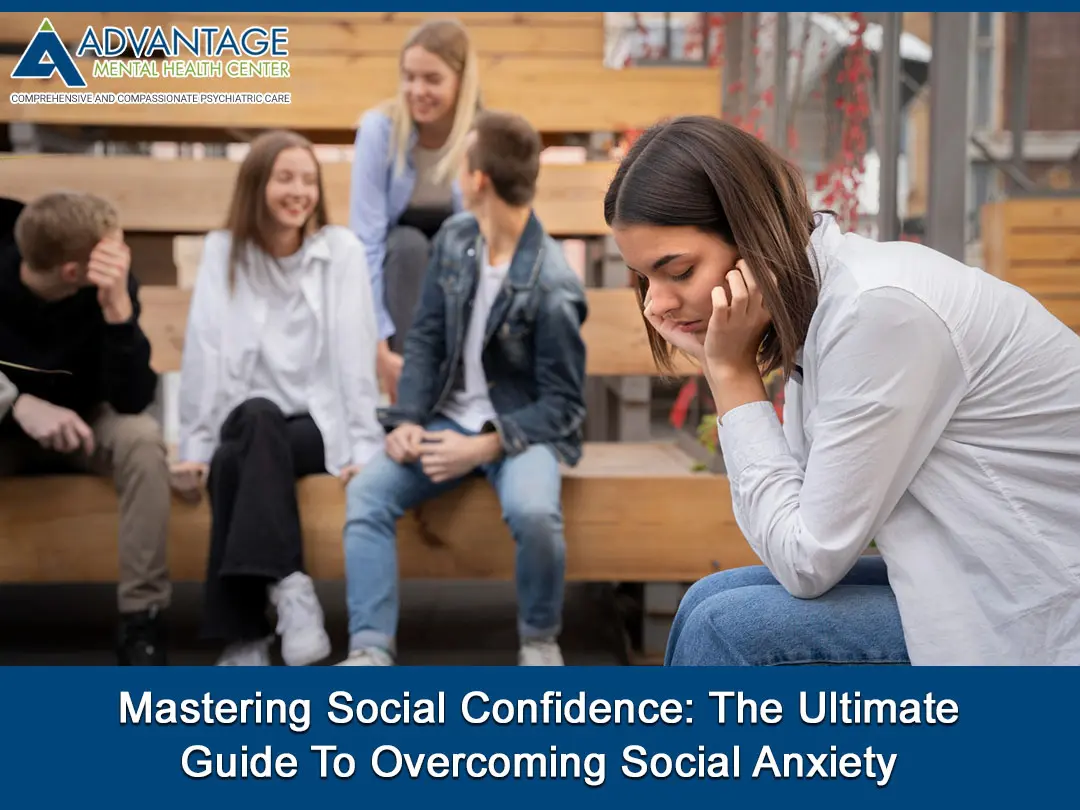Social anxiety, a prevalent mental health condition, significantly impacts the lives of many individuals. It involves an intense fear of social situations and the potential for judgment or scrutiny by others. The fear can be so overwhelming that it interferes with daily activities, relationships, and overall well-being. Recognizing the signs of social anxiety and seeking professional help, such as a psychiatrist in Clearwater, can lead to effective management and improved quality of life.
Understanding social anxiety begins with recognizing its symptoms. People with this condition often experience excessive self-consciousness in everyday social interactions. They may worry excessively about being judged, embarrassed, or humiliated. Physical symptoms, such as sweating, trembling, blushing, and an increased heart rate, often accompany these feelings of intense anxiety. These symptoms can occur in various situations, such as speaking in public, meeting new people, or engaging in casual conversations.
The origins of social anxiety are multifaceted. Genetics, brain structure, and environmental factors all contribute to its development. Family history can play a role, as social anxiety tends to run in families. Additionally, brain structure and function, particularly in regions that regulate fear and anxiety, can influence the likelihood of developing this condition. Environmental factors, such as past negative experiences, childhood bullying, or overprotective parenting, can also contribute to the onset of social anxiety.
Social anxiety can be debilitating, but it is manageable with the right approach. One effective strategy is cognitive-behavioral therapy (CBT). CBT helps individuals identify and challenge negative thought patterns and beliefs that contribute to their anxiety. By restructuring these thoughts, individuals can develop healthier and more realistic perspectives about social situations. Additionally, CBT often involves gradual exposure to feared situations, allowing individuals to build confidence and reduce their anxiety over time.
Another effective treatment option is medication. Selective serotonin reuptake inhibitors (SSRIs), commonly prescribed for depression, can also alleviate symptoms of social anxiety. These medications work by increasing serotonin levels in the brain, which helps regulate mood and reduce anxiety. Consulting with a psychiatrist can guide whether medication is suitable and which type may be most effective.
In addition to therapy and medication, lifestyle changes can significantly impact managing social anxiety. Regular exercise, for instance, has been shown to reduce anxiety levels by releasing endorphins and promoting a sense of well-being. Mindfulness and relaxation techniques, such as deep breathing, meditation, and yoga, can help individuals manage stress and stay grounded in social situations.
Social support plays a crucial role in overcoming social anxiety. Connecting with supportive friends, family members, or support groups can provide a sense of belonging and reduce feelings of isolation. Sharing experiences with others who understand can be incredibly validating and comforting. Support groups, in particular, offer a safe space to practice social skills and receive constructive feedback.
Building self-esteem is another important aspect of managing social anxiety. Low self-esteem often exacerbates feelings of social anxiety, as individuals may doubt their abilities and worthiness in social situations. Engaging in activities that foster a sense of accomplishment and self-worth can boost self-esteem. This might include pursuing hobbies, setting achievable goals, or volunteering for causes that matter to you.
Professional guidance from a psychiatrist in Clearwater can provide personalized strategies and support. A psychiatrist can assess the severity of social anxiety, recommend appropriate treatment options, and monitor progress. They can also provide coping mechanisms tailored to individual needs, ensuring a comprehensive approach to managing social anxiety.
In summary, understanding social anxiety involves recognizing its symptoms and underlying causes. Effective management combines therapy, medication, lifestyle changes, and social support. Building self-esteem and seeking professional guidance are also critical components. By holistically addressing social anxiety, individuals can regain control over their lives and engage in social interactions confidently and easily. If you or someone you know is struggling with social anxiety, consulting a psychiatrist in the Tampa Bay area can be the first step toward overcoming this condition and achieving a more fulfilling life. For more information and professional support, visit Advantage Mental Health Center.
Picture Credit: Freepik


